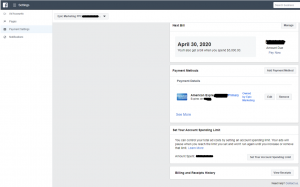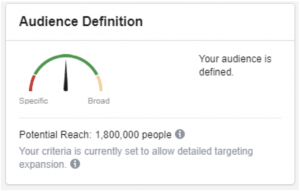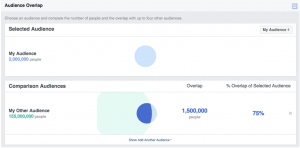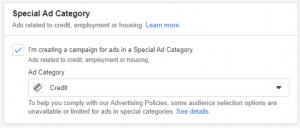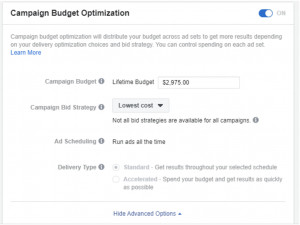How to Hire a Marketing Agency
Hiring a marketing agency is a big step for any business. Whether you are a big or small company, entrusting your marketing endeavors to an external team can be daunting. Finding a good agency is an investment. It takes both money and time to find the right fit. And like all things, you run the risk of making the wrong decision. This is not meant to scare you, but to highlight the importance of thorough research and effective vetting. Before jumping into the “choosing an agency” process, it is best to start by asking yourself some basic questions.
Big Picture Questions
These big picture questions are meant to help you look at your business and its needs in a broad manner. Details are important. But a big picture focus identifies the framework of your marketing goals. Understanding why you want a marketing agency and your intent with that agency can set you on the right course when it comes to actually hiring one.
Are You Ready For An Agency?
Whether or not you’re ready for an agency is largely determined by what you’re looking for. A good rule of thumb is if you’re looking to check off tasks, consider hiring in-house marketing help. If your goal is to develop brand strategy and campaigns, opt for hiring an experienced marketing agency. The driver behind hiring an external team is they can look at your business from an outside perspective. They can use their industry knowledge to develop a marketing plan and strategy that you may have never considered.
Why do you want to hire an agency?
Your intent behind hiring an agency is indicative of whether it is the best idea or not. If you’re looking towards an agency because you’re frustrated with your sales and want an immediate fix, hiring an agency would be a waste of time and resources. Marketing is a long-term game with effects that are often felt further down the line. If you’re looking to set in place a foundation and plan for continued advertising, an agency partner can offer you that blueprint.
Long-term goals with the agency?
Consider your long term goals with an agency. Are you looking to develop a campaign for a specific product? Do you want to run ads for the foreseeable future? Figuring out what you want long term from an agency will not only help you choose the right fit but will also help the agency better serve you and adjust their strategic marketing plan to meet your needs.
Detail Oriented Questions
Now that we’ve covered the big picture, onto the details. Marketing is an industry that plays heavily on specifics. Your type of business, brand, and definition of success can all help you select the right agency for what you need. You will soon find that different agencies have different specialties and operate in different ways. Some of these will inevitably not be right for you. Establishing a selective set of needs will make your options more targeted.
Local or not?
The location of your marketing team depends mostly on your type of business and your preferences when it comes to meetings. For the most part, location-based companies, like storefronts, restaurants, or local services, prefer to work with a local company. A local company has a better idea of the advertising market in that specific area and can offer location-specific insights. If your business is entirely online, the location of your team may matter less. This being said, for either type of business, if you prefer to meet face to face and often, a team that is in your local area is better.
What kind of agency are you looking for?
Not all marketing agencies are built the same. There are full-service agencies that offer all marketing services and there are more specific agencies that specialize in a specific part of marketing whether that’s branding, content marketing, digital marketing, video production, social media marketing, web design, etc. If you’re looking for a specific service, say you want solely TV commercials or promotional videos, you may opt for a video-specific agency. If you’re looking for multiple agency services, a full-service agency may be the best fit. This way, all your services are sure to look consistent as they are all produced by the same team.
What are you looking to accomplish specifically?
It is important that your specific goals align with the goals of your marketing team. Different agencies will have different opinions on how to go about marketing your product or service. If you find that an agency is too far removed from what you want, it may not be the best fit. While it is important to keep an open mind when discussing marketing with marketing experts, sometimes it just doesn’t line up. Having a specific list of needs or goals ready to discuss can help guide you towards the right choice.
Steps To Hiring A Marketing Agency
Now that you have asked yourself some basic questions, it’s time to start the process of hiring an agency. It is important not to rush this process. Hurrying through the steps and hiring an agency quickly can not only lead to a loss of time and money but could significantly impact your business. When looking at different agencies, take your time, do your research, and be confident in the decision you make.
Research.
Good research is the foundation to finding the right marketing agency. Start narrowing your field by searching for specific elements you want, whether that is industry, location, price, etc. As you find potential contenders, start putting together a list. Be sure to look at individual agencies’ websites and their past work. Often the website will have a section of case studies or portfolios that outline past projects, processes, and results. Check out client reviews and testimonials to see how other companies would rate their experiences.
Request.
Once you’ve gathered your well-researched list, send out what is called a request for information (RFI). An RFI is an incredibly useful document for both parties. It allows you, the potential client, to outline your business’s background, needs, and wants. And it provides a place for you to collect information on the agencies you’re looking at. The agency that receives the document can now see exactly what you are looking for, and provide any information or numbers that were asked of them. These documents act as digestible summaries of your potential options.
Compare.
This is where the real selection starts. The requests that you collected in the previous step are an excellent launch pad for comparison. You have a snapshot of budgets, skills, and agency services that you can compare and contrast. This is the step where you begin to decide what factors are more important to you. Maybe you have a strict budget and the agency that offers the most within that sum is the best option. Or maybe you’re most interested in skillsets and willing to pay a little over what you had originally settled on. Ultimately this is where you look at all the research and resources that you collected and take your pick.
Start.
If you’ve made it this far, congrats! You have a new marketing agency. Now the fun starts. Your first meeting with the new team can be exciting and nerve-wracking. This is where you can start to outline the plan for your company’s marketing strategy. You’ll go over the different services and goals for each, and see how the team begins to develop your blueprint. This meeting is important for you to confirm that you’re confident in this decision. And remember, if it doesn’t work out, it’s okay to break up!
Marketing Agency Red Flags
When you’re on the agency hunt, it’s important to be wary of red flags. Here are 5 telltale signs to look out for when considering an agency.
They overpromise results
Marketing is a game of patience and consistency. If an agency promises you success immediately, you may want to consider why they would need to oversell.
They lack proof of past success
An agency that is confident in their abilities and has the results to prove it will post it to their site. If you can’t find any proof of success for an agency, it may mean it was never there to begin with.
They have poor communication
If an agency has poor communication at the very beginning, it won’t be there at the end. A lack of communication is a lack of transparency, and that is not something you want.
They use a lot of buzzwords
You don’t have to be a marketing genius to understand the basics of what an agency is helping you with. If all you hear are big, fluffy words and no explanations, it’s best to find someone else.
They have little to no client retention
They say the proof is in the pudding. In marketing, the proof is in the past clients. If an agency shows little to no client retention, the issue isn’t the clients, it’s them.
The Bottom Line
Hiring a marketing agency is an investment. It requires you to dedicate time, money, and energy. It is important to take your time, be thorough, and do your research. But, successful marketing efforts offer excellent return on that investment.
It may seem daunting, but we hope these steps ease some of those nerves. And if you’re looking for some help, fill out the contact form below. We look forward to chatting with you.






